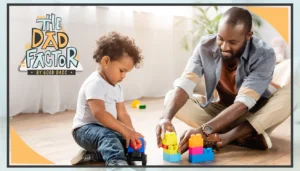Our Good Dads podcast recently received feedback from a listener who wondered about how a dad could be engaged in his child’s life when the child’s mother, with whom he is no longer on good terms, makes it extremely difficult for him to do so. Sadly, there are many dads dealing with this heart-breaking concern. We frequently hear stories from men in our New Pathways program about this issue. Their feelings of frustration and powerlessness are understandable.
For more than two decades I’ve also heard stories of parental alienation from men and women in therapy. It’s one of the reasons I started Good Dads. Here are some considerations I typically share with my clients and other men associated with Good Dads.

1) Take the long-term view. This situation will require considerable patience. It will not be over quickly. It is essential you view the actions you are taking each and every day as moving you even a little bit at a time in the right direction. One dad recently said to me, “We didn’t get here overnight. I know I need to be patient.”
2) Act with dignity and respect. You never move yourself closer to your chosen goal by behaving in angry and aggressive ways intended to intimidate or negatively impact your ex-partner and, as a result, your child. I’m not saying it’s easy. I’m not saying the other party deserves it. I’m saying your child benefits when you do this and that is the most important thing.
3) Do remember your child with notes, cards, and occasional gifts even when you can’t be together. Our New Pathways dads make Christmas cards, valentines, birthday cards, etc. and put them in a box they will someday be able to share with their child even if they don’t have contact at this moment. What children want to know is, “Is my dad thinking about me?” This box, filled with evidence from over the months or years, can go a long way toward healing a relationship as an adult.

4) Your child will never thank you for speaking badly of the other parent. Again, it may be true. They may deserve it, but that is the only (in this case) mother the child is ever going to have. Let your child draw his or her own conclusions, which they will do over time.
5) As they become teens or young adults, children are often quite bitter and resentful toward one parent who tried to turn them against the other. This is encouragement for you to “hold on” and also not reciprocate with negative, caustic words of your own.
6) Pay child support. If this is an issue, always pay something, even if you can’t pay everything. Consult with Child Support Enforcement. Through their New Pathways program, Good Dads has a special assistance for dads struggling in this area.
7) Do seek legal help for issues that cannot be resolved with time and patience. Also expect the legal option to take time and money. Nothing moves quickly through the courts.
8) Seek supportive relationships, i.e., other people who will encourage you, not just attempt to bring you down. The “ain’t it awful” approach rarely moves anyone forward.)
9) Consider using mediation. MARCH (Mediation Achieving Results for Children) is a private, not-for-profit corporation governed by a board made up of representatives from participating judicial circuits, mainly mediators. Other members include a state legislator, judges, a family court commissioner, representatives from the Missouri Family Support Division, and a member of the Family Law Section of the Missouri Bar. Board and Advisory Committee members share a common goal in promoting mediation as a first alternative to be utilized by separated families in the dispute resolution process.





